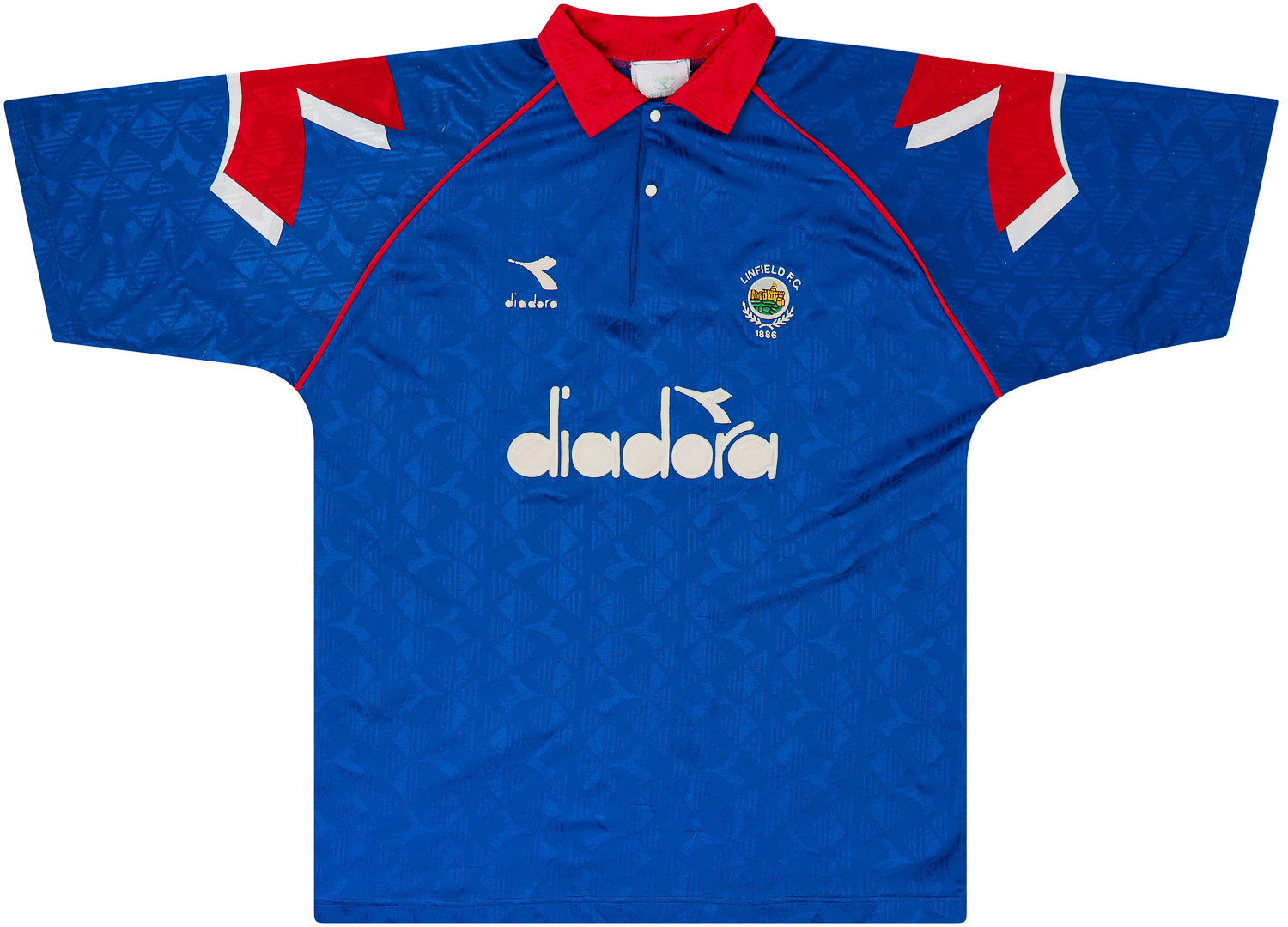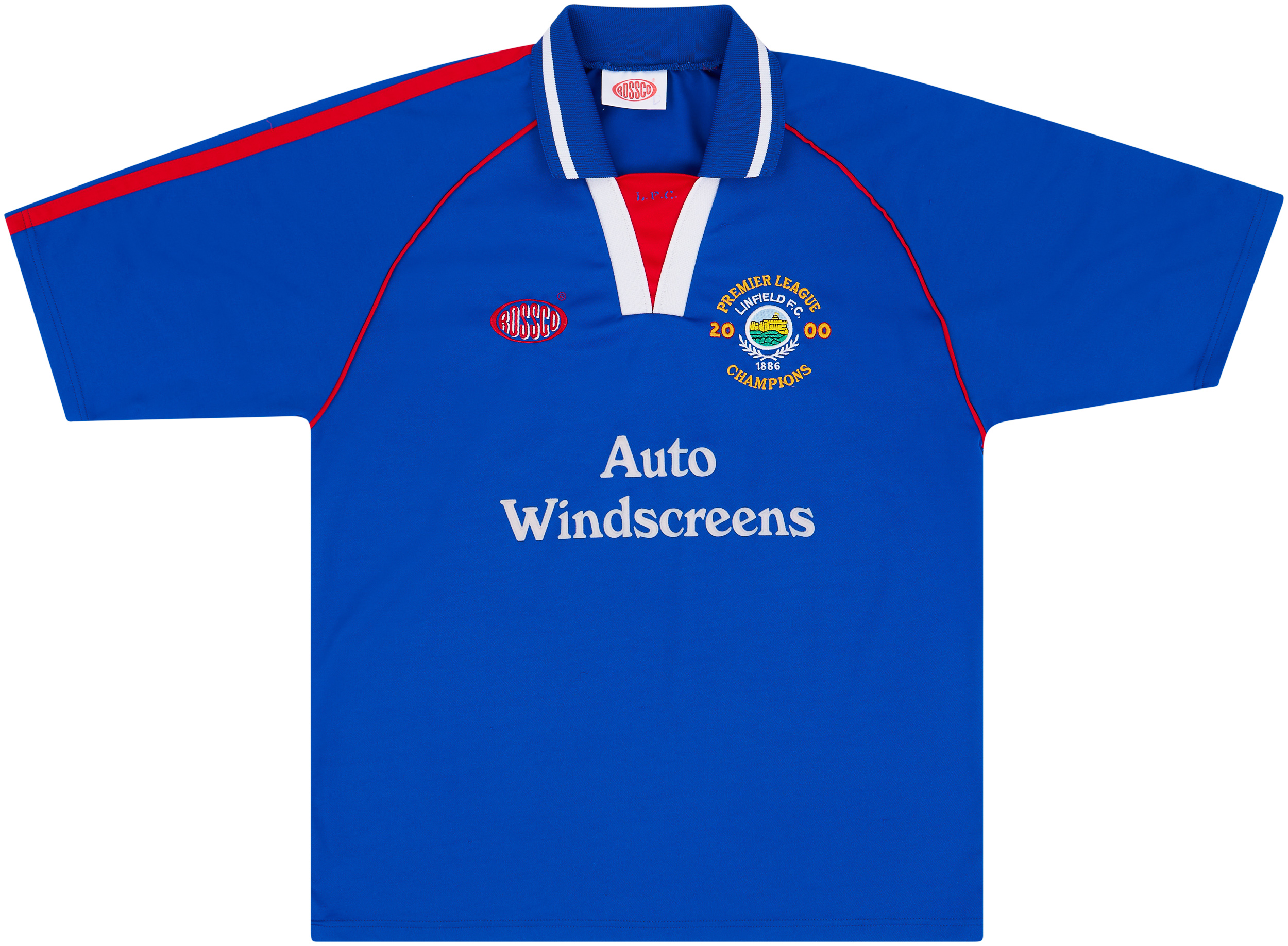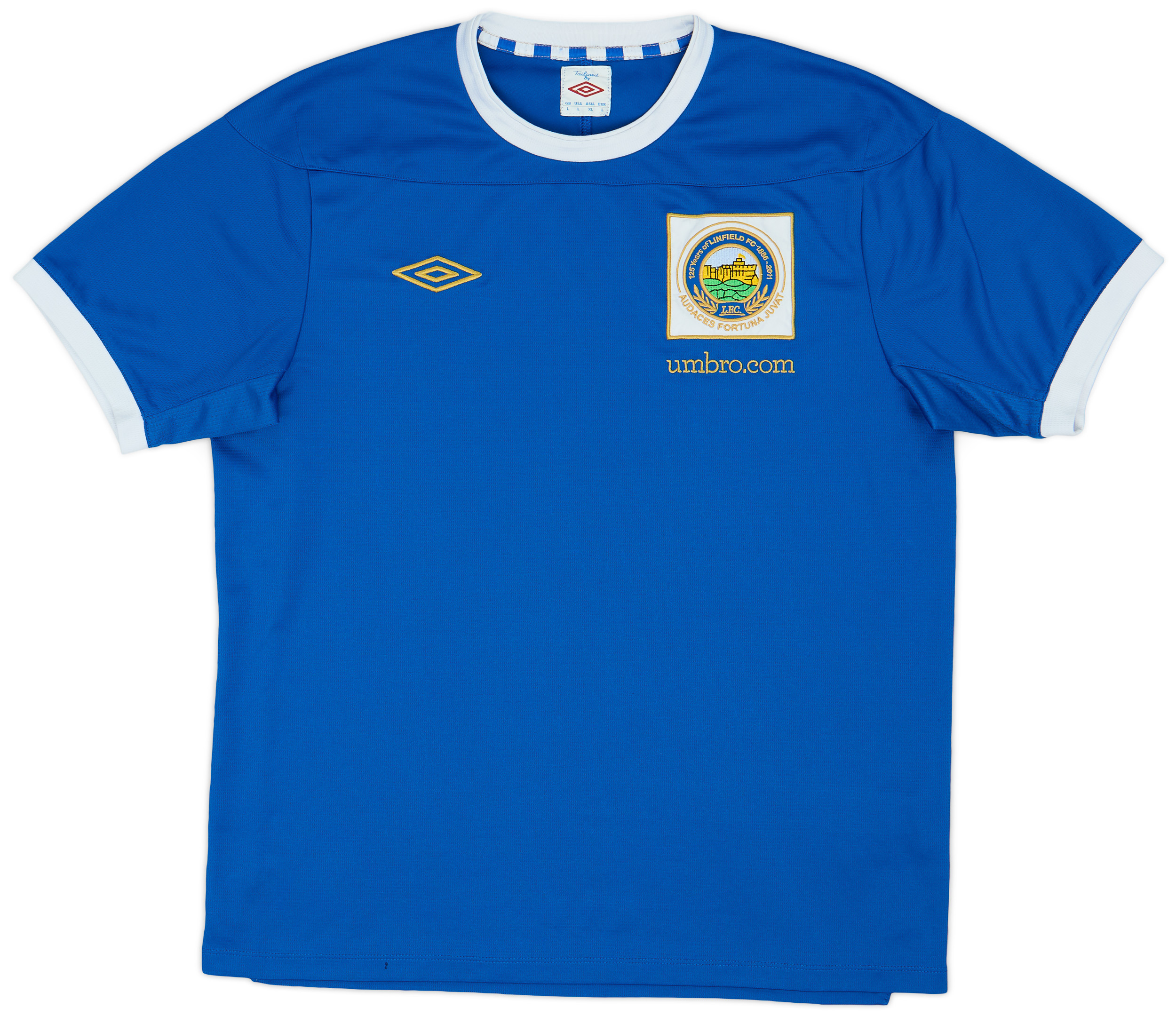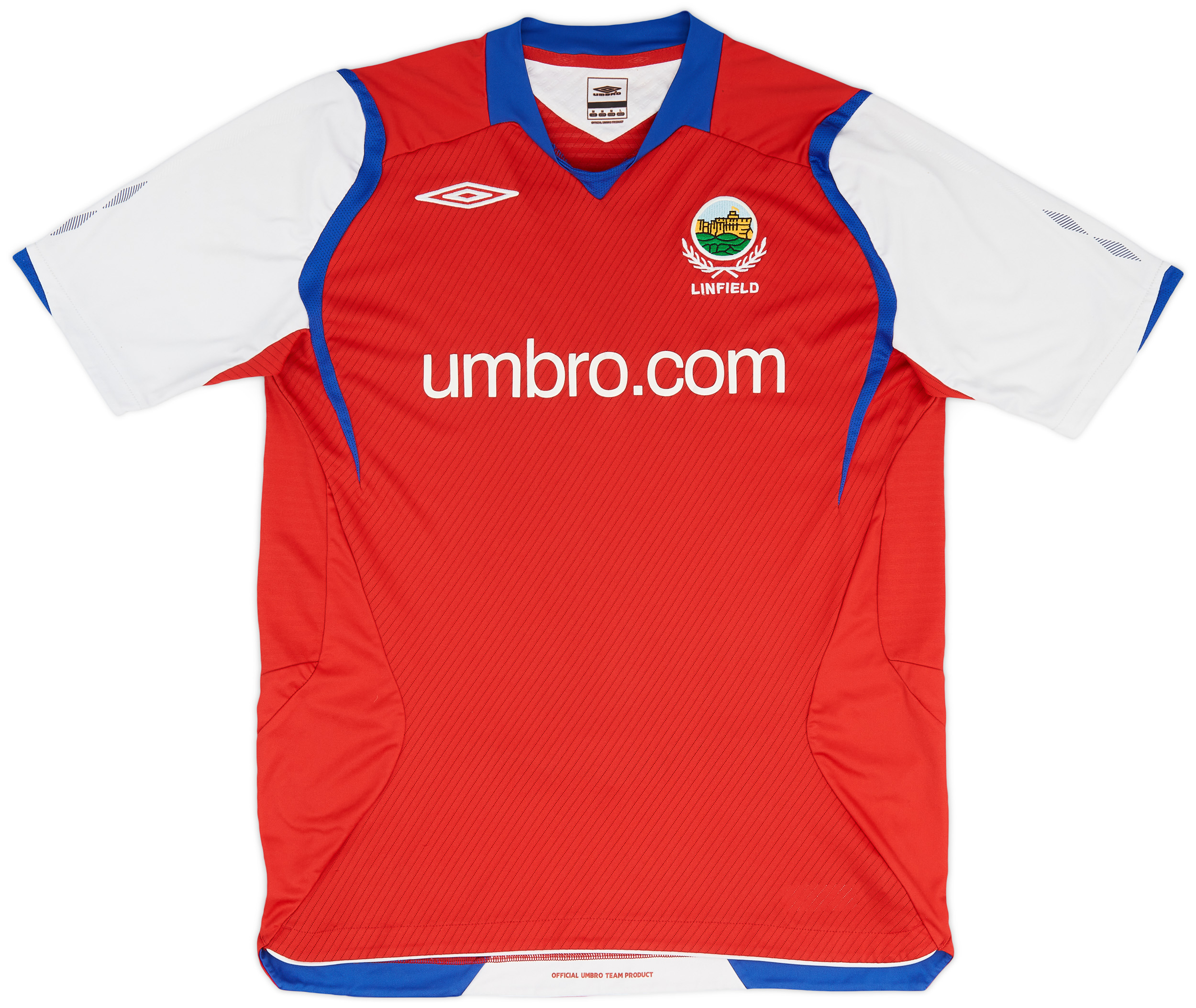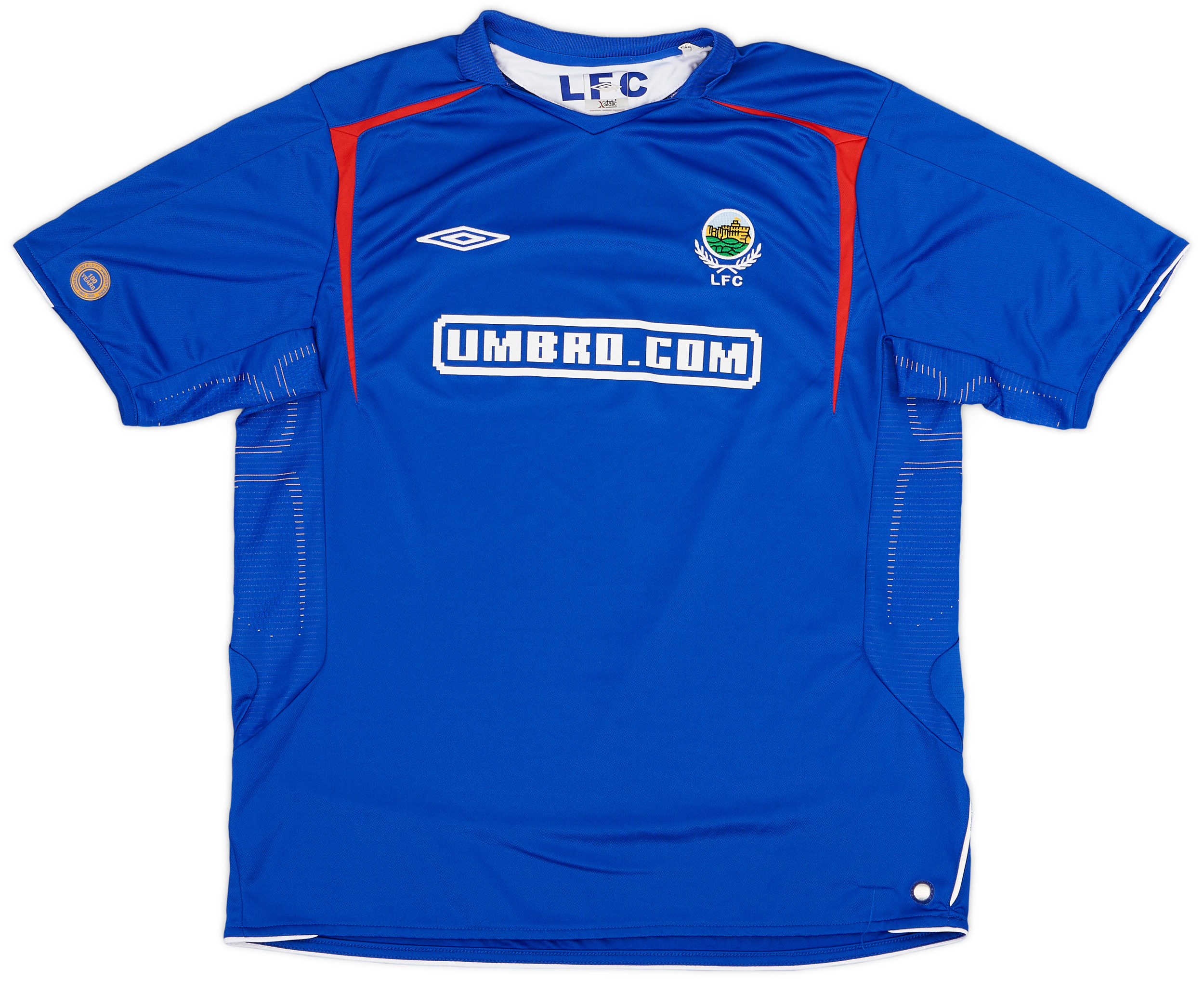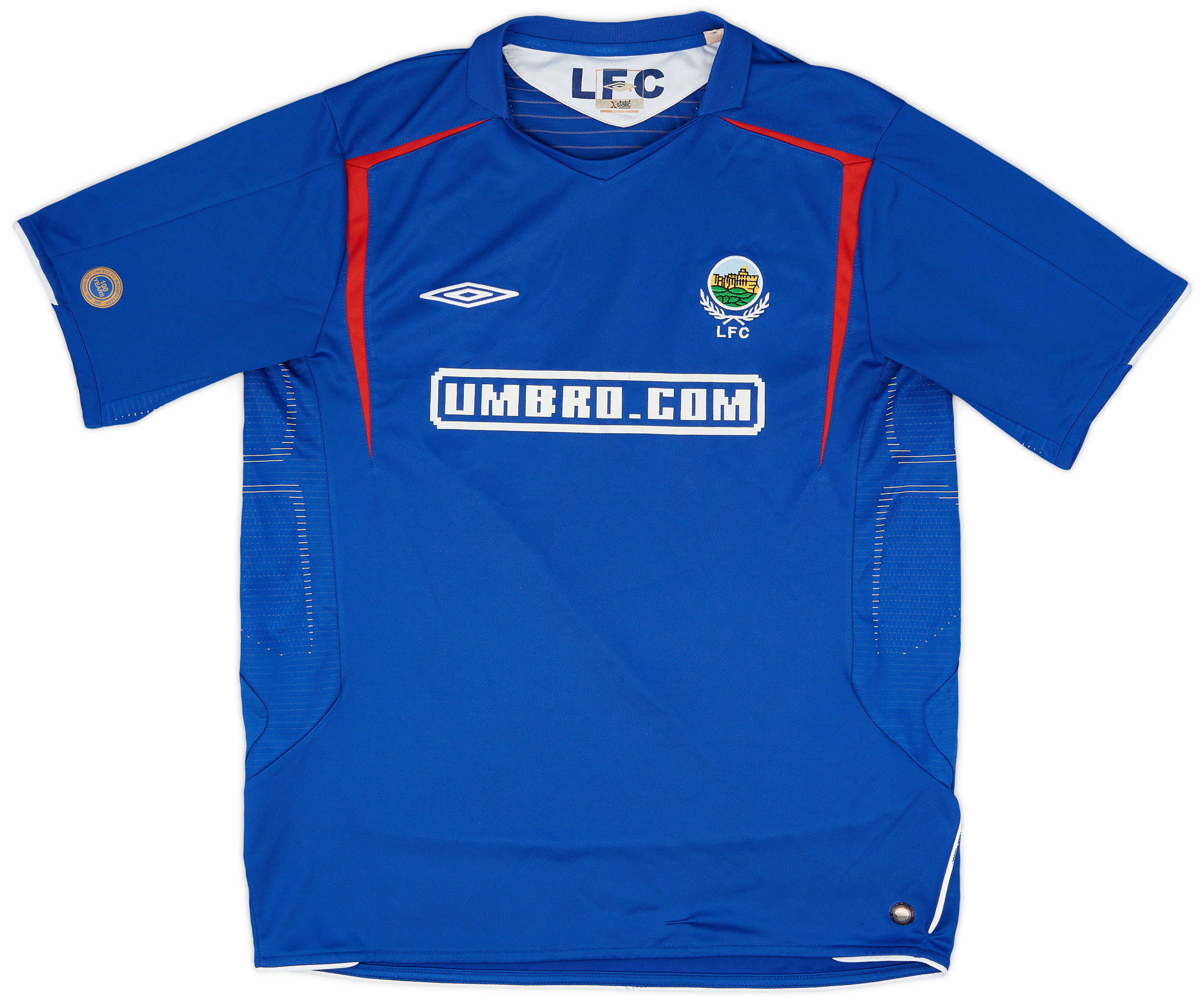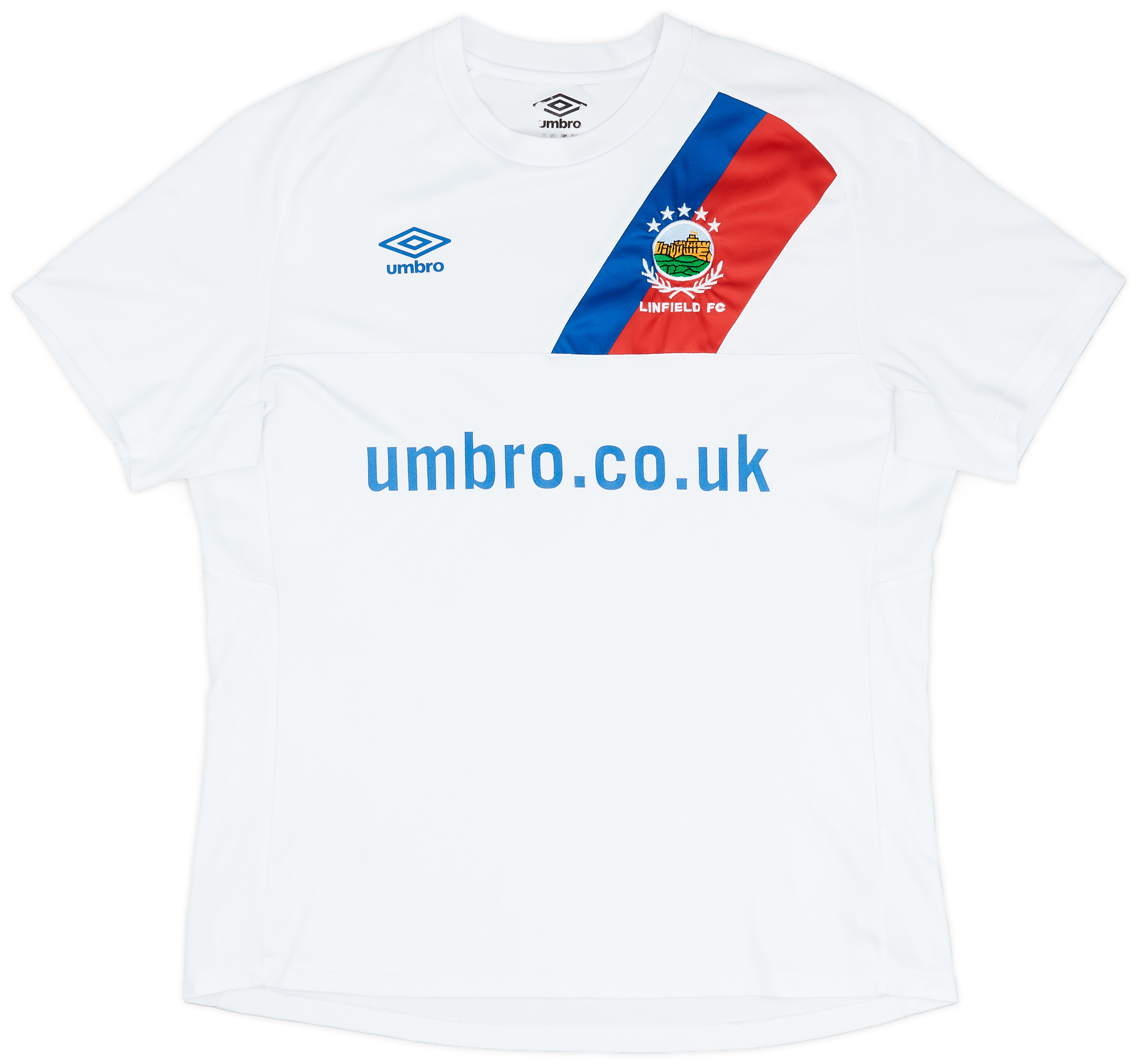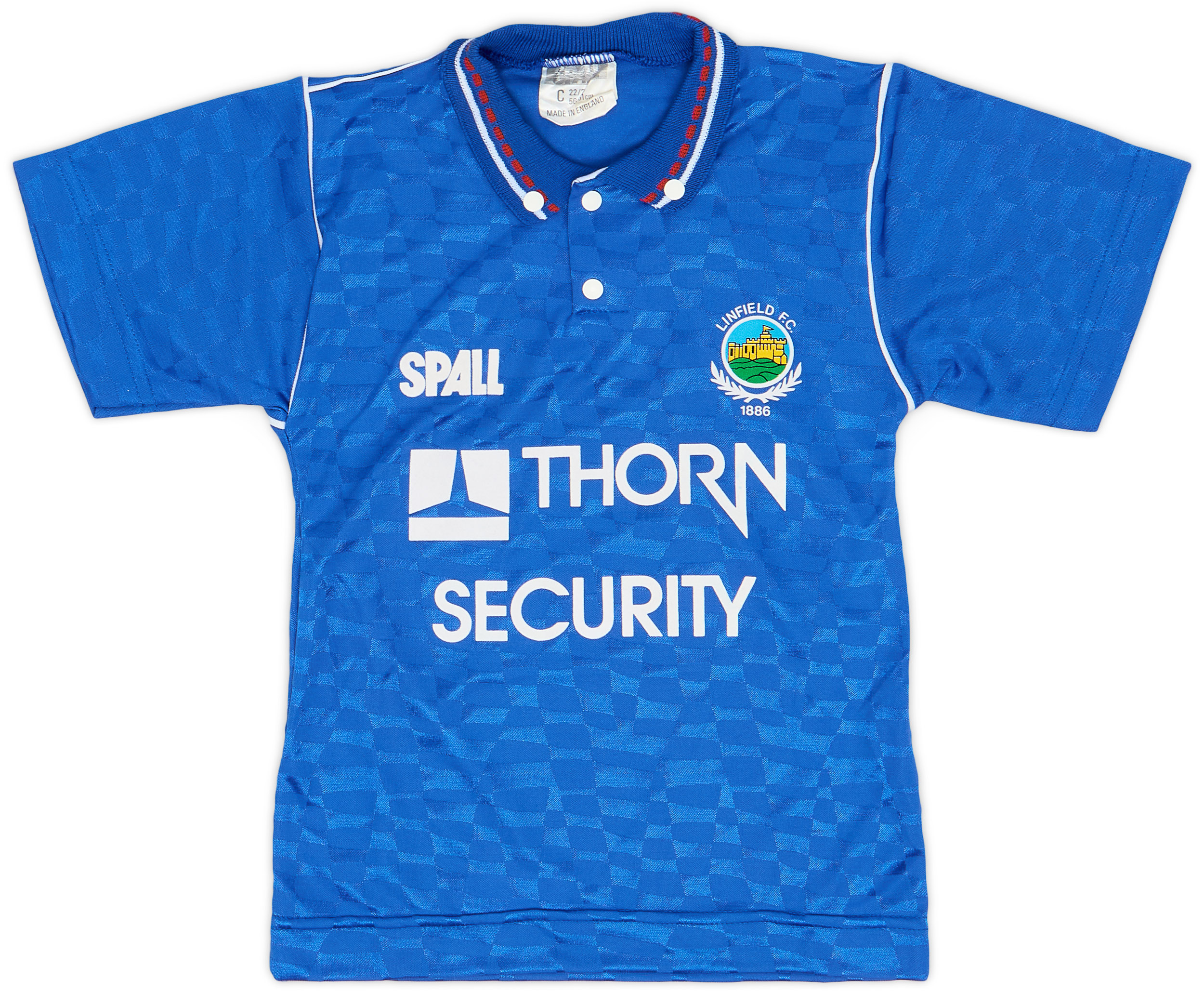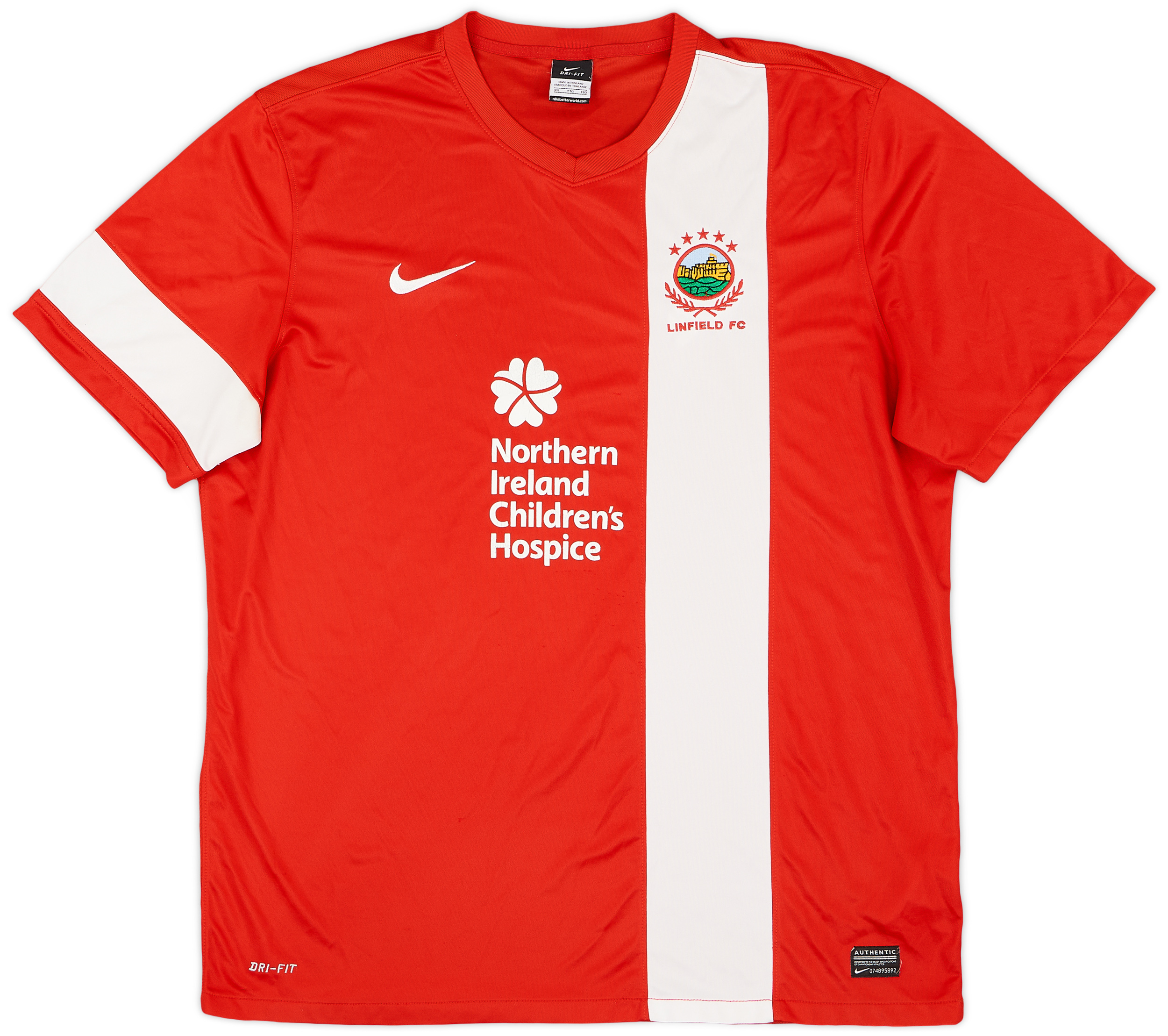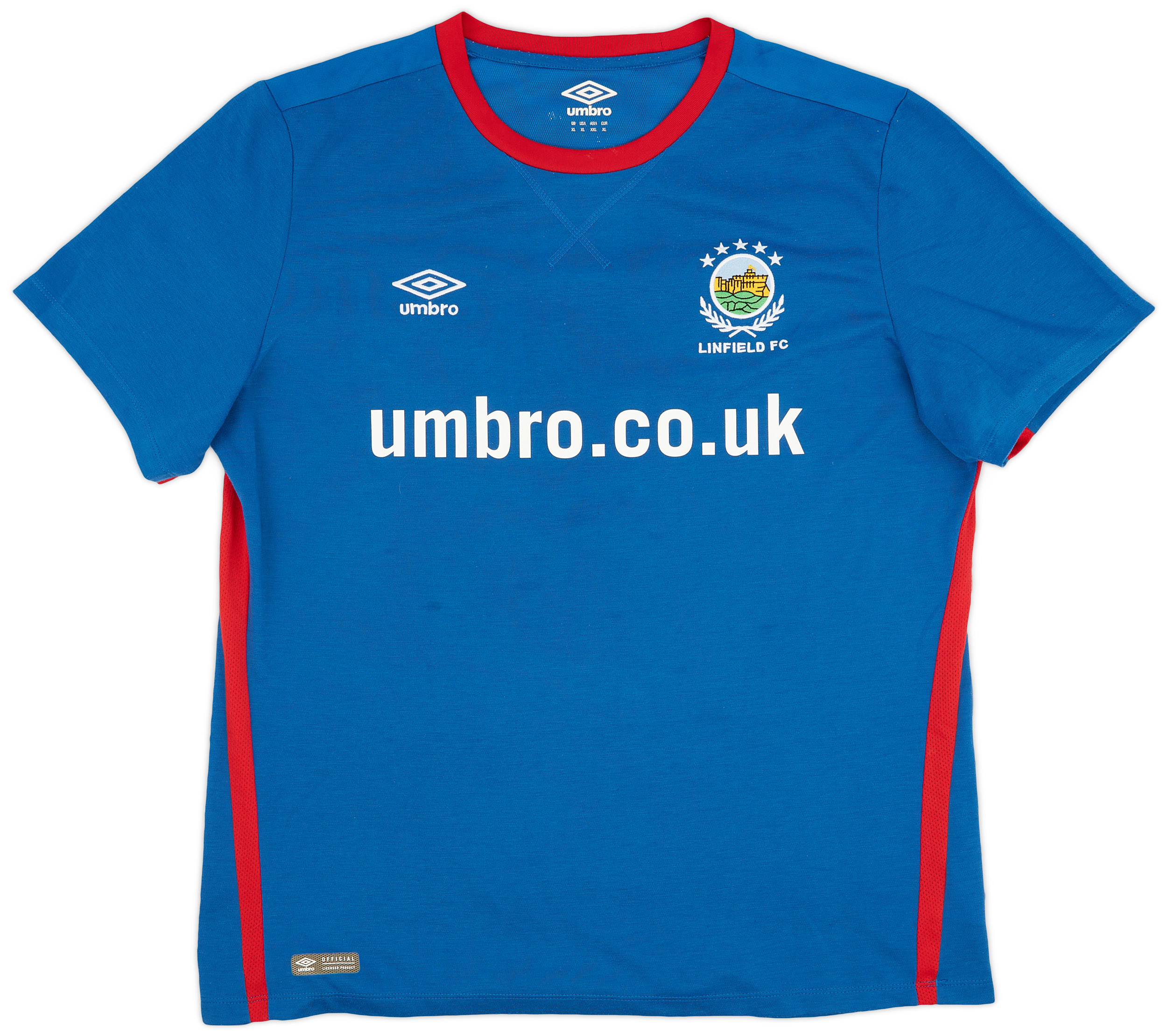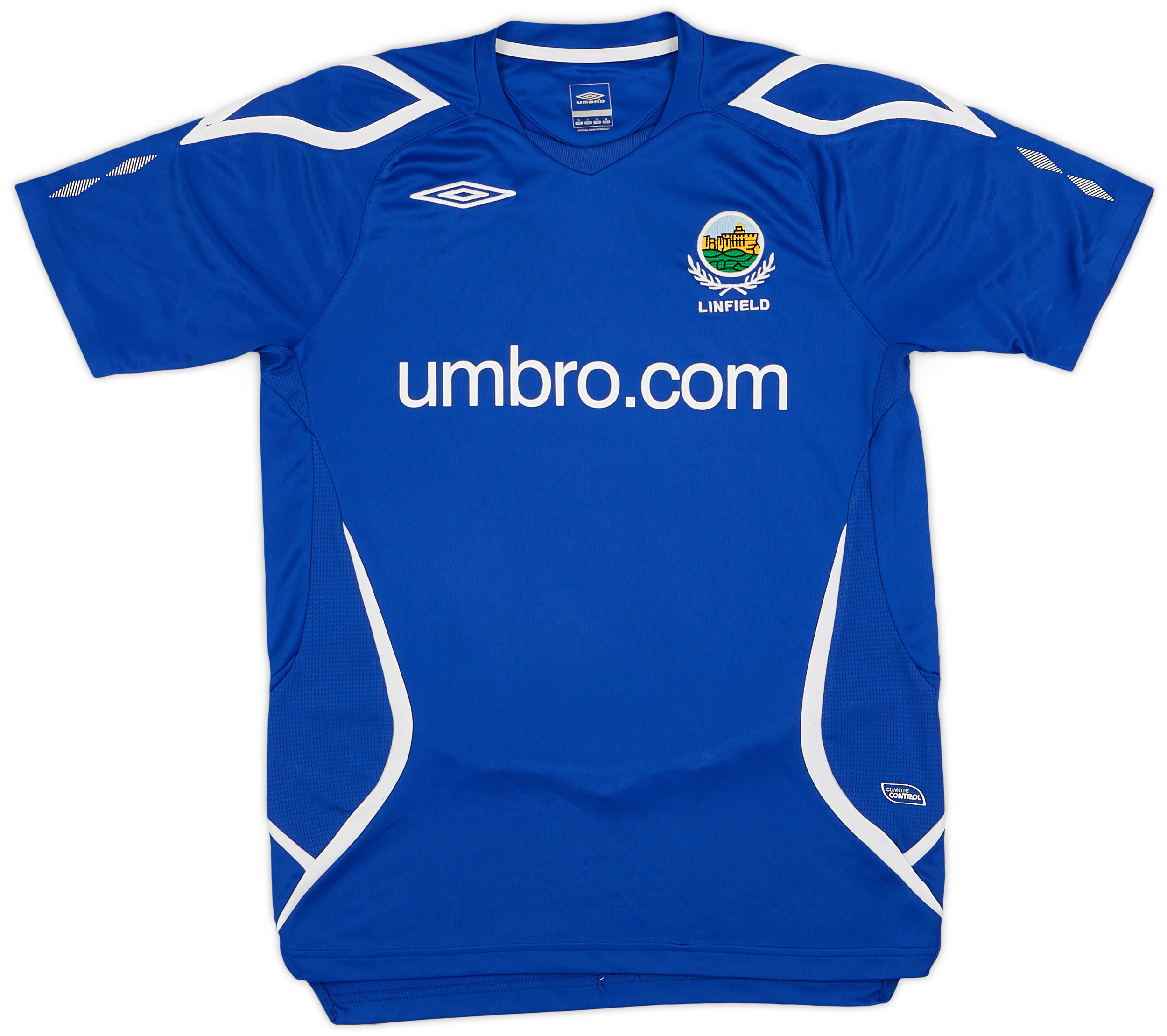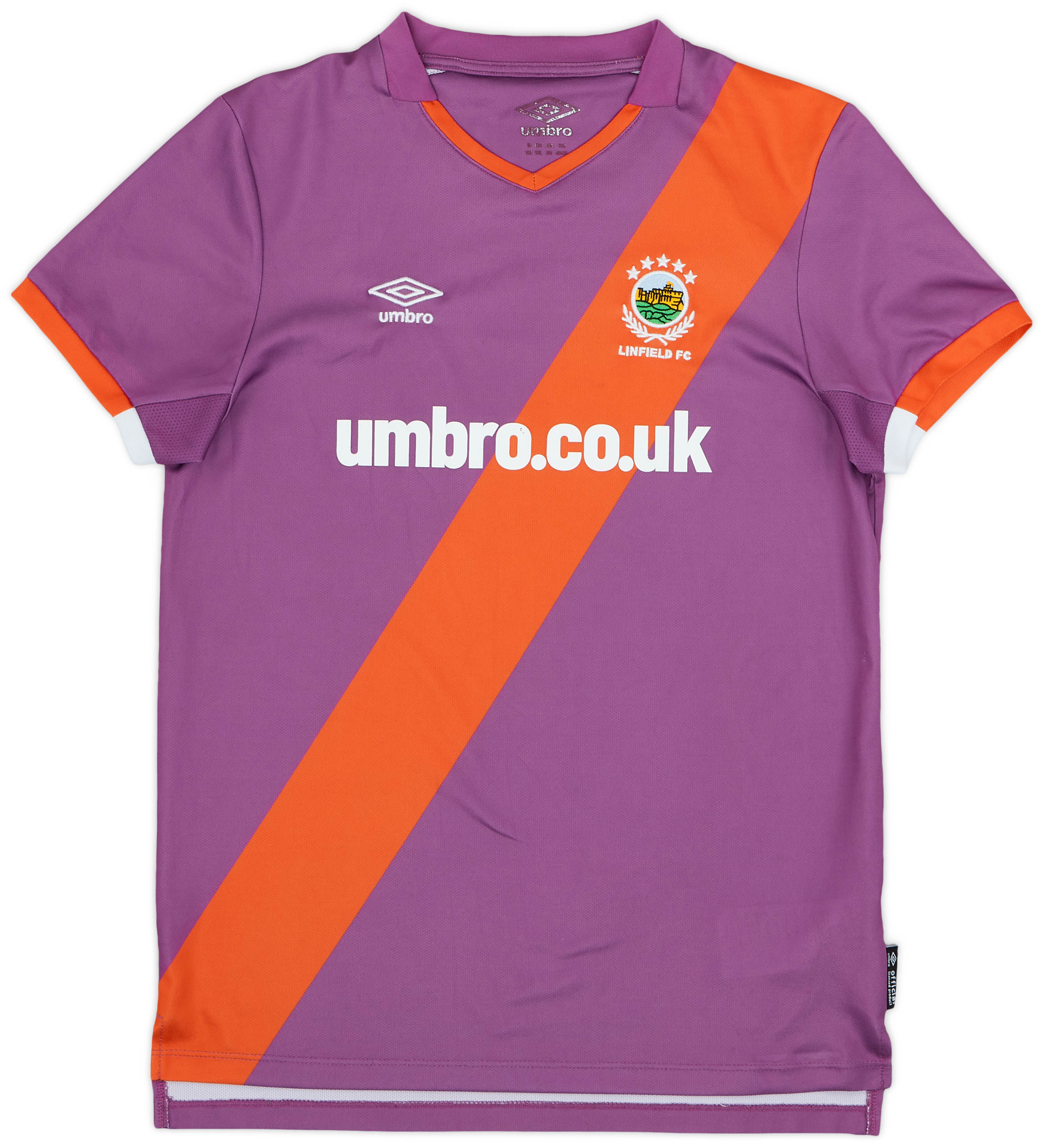Linfield
Introduction Linfield Football Club, often referred to simply as Linfield, is a prestigious and storied name in Northern Irish football. Founded in 1886, the club has grown from humble beginnings to become the most successful club in the history of Northern Ireland. Based in Belfast, Linfield carries with it a rich heritage that has interwoven […]
1981-84 Linfield Match Issue Home Shirt #12
296.99£ - ca: €350
1987-90 Linfield Home Shirt - 7/10 - (L)
237.99£ - ca: €281
1993-94 Linfield Away Shirt - 7/10 - (L)
207.99£ - ca: €245
1996-98 Linfield Home Shirt - 8/10 - (XL)
177.99£ - ca: €210
1995-96 Linfield Home Shirt - 9/10 - (XL)
177.99£ - ca: €210
1995-96 Linfield Home Shirt - 6/10 - (XL)
148.99£ - ca: €176
1995-96 Linfield Home Shirt - 6/10 - (XL)
148.99£ - ca: €176
1995-96 Linfield Home Shirt - 7/10 - (XL)
148.99£ - ca: €176
2000-01 Linfield Home Shirt - 8/10 - (S)
106.99£ - ca: €126
2011-12 Linfield Away Shirt - 8/10 - (L)
82.99£ - ca: €98
2011-12 Linfield Away Shirt - 9/10 - (XXL)
82.99£ - ca: €98
2011-12 Linfield Home Shirt - 8/10 - (L)
82.99£ - ca: €98
2004-05 Linfield Away Shirt - 8/10 - (L)
82.99£ - ca: €98
2008-09 Linfield Away Shirt - 10/10 - (L)
82.99£ - ca: €98
2008-09 Linfield Away Shirt - 8/10 - (M)
82.99£ - ca: €98
2011-12 Linfield Away Shirt - 8/10 - (M)
82.99£ - ca: €98
2010-11 Linfield Home L/S Shirt - 8/10 - (L)
70.99£ - ca: €84
2011-12 Linfield Home Shirt - 9/10 - (L)
70.99£ - ca: €84
2010-11 Linfield Home Shirt (M)
70.99£ - ca: €84
2006-08 Linfield Umbro Bomber Jacket - 7/10 - (L)
70.99£ - ca: €84
2009-10 Linfield Away Shirt - 9/10 - (L)
70.99£ - ca: €84
2010-11 Linfield L/S Home Shirt - 8/10 - (L)
70.99£ - ca: €84
2012-13 Linfield Away Shirt (M)
70.99£ - ca: €84
2010-11 Linfield Home Shirt (S)
70.99£ - ca: €84
1991-92 Linfield Away Shirt - 9/10 - (M.Boys)
70.99£ - ca: €84
2007-08 Linfield Away Shirt - 8/10 - (XL)
70.99£ - ca: €84
2011-12 Linfield Home Shirt - 8/10 - (XL)
70.99£ - ca: €84
2008-09 Linfield Umbro Track Jacket - 8/10 - (L)
70.99£ - ca: €84
2009-10 Linfield Away Shirt - 8/10 - (XL)
70.99£ - ca: €84
2012-13 Linfield Away Shirt #19 - 7/10 - (L)
58.99£ - ca: €70
2005-07 Linfield Home Shirt - 9/10 - (XXL)
58.99£ - ca: €70
2016-17 Linfield Umbro Hooded Track Jacket - 9/10 - (M)
58.99£ - ca: €70
2018-19 Linfield Away Shirt - 9/10 - (L)
58.99£ - ca: €70
2016-17 Linfield Umbro Hooded Track Jacket - 9/10 - (M)
58.99£ - ca: €70
2011-12 Linfield Alternate Home Shirt - 9/10 - (L)
58.99£ - ca: €70
2011-12 Linfield Home Shirt - 7/10 - (XL)
58.99£ - ca: €70
2001-02 Linfield Home Shirt - 6/10 - (S)
58.99£ - ca: €70
2018-19 Linfield Away Shirt - 9/10 - (XXL)
58.99£ - ca: €70
2006-07 Linfield Away Shirt - 8/10 - (S)
58.99£ - ca: €70
2006-07 Linfield Away Shirt - 8/10 - (M)
58.99£ - ca: €70
2007-08 Linfield Home Shirt - 9/10 - (S)
53.99£ - ca: €64
2005-07 Linfield Home Shirt - 6/10 - (XL)
53.99£ - ca: €64
2009-10 Linfield Away L/S Shirt - 5/10 - (XL)
53.99£ - ca: €64
2012-13 Linfield Away Shirt - 6/10 - (XXL)
53.99£ - ca: €64
2012-13 Linfield Home Shirt - 9/10 - (L)
53.99£ - ca: €64
2016-18 Linfield Away Shirt - 7/10 - (XL)
53.99£ - ca: €64
2013-14 Linfield Away Shirt - 9/10 - (XL)
53.99£ - ca: €64
2013-14 Linfield Home Shirt - 9/10 - (S)
47.99£ - ca: €57
2013-14 Linfield Away Shirt - 7/10 - (XL)
47.99£ - ca: €57
2003-05 Linfield Home Shirt - 8/10 - (XXL)
47.99£ - ca: €57
1991-92 Linfield Home Shirt - 10/10 - (3-6 Years)
47.99£ - ca: €57
2013-14 Linfield Away Shirt - 7/10 - (XXL)
47.99£ - ca: €57
2011-12 Linfield Home L/S Shirt - 9/10 - (XL.Boys)
47.99£ - ca: €57
2013-14 Linfield Home Shirt - 7/10 - (L)
41.99£ - ca: €50
2017-19 Linfield Home Shirt - 10/10 - (XL)
41.99£ - ca: €50
2008-09 Linfield Home Shirt - 8/10 - (S)
41.99£ - ca: €50
2008-09 Linfield Umbro Training Shirt - 9/10 - (S)
35.99£ - ca: €42
2008-09 Linfield Home Shirt - 7/10 - (S)
35.99£ - ca: €42
2005-06 Linfield Training Shirt - 8/10 - (M)
29.99£ - ca: €35
2010-11 Linfield Home Shirt - 4/10 - (S)
23.99£ - ca: €28
2008-09 Linfield Home Shirt - 8/10 - (XL.Boys)
23.99£ - ca: €28
2008-09 Linfield Umbro Polo Shirt - 7/10 - (L)
23.99£ - ca: €28
2020-21 Linfield Away Shirt - 7/10 - (XL.Boys)
23.99£ - ca: €28
2005-06 Linfield Away Shirt - 6/10 - (L.Boys)
18.99£ - ca: €22
2019-21 Linfield Home Shirt - 6/10 - (L.Boys)
17.99£ - ca: €21
2016-17 Linfield Away Shirt (KIDS)
13.99£ - ca: €17
2022-23 Linfield Home Shorts
11.99£ - ca: €14
2022-23 Linfield Away Shorts
11.99£ - ca: €14
2022-23 Linfield Away Shorts (KIDS)
6.99£ - ca: €8
2022-23 Linfield Home Shorts (KIDS)
6.99£ - ca: €8
2022-23 Linfield Away Socks (L)
3.99£ - ca: €5
2022-23 Linfield Home Socks (L)
1.99£ - ca: €2
2019-21 Linfield Home Socks (Little Kids)
0.99£ - ca: €1
Introduction
Linfield Football Club, often referred to simply as Linfield, is a prestigious and storied name in Northern Irish football. Founded in 1886, the club has grown from humble beginnings to become the most successful club in the history of Northern Ireland. Based in Belfast, Linfield carries with it a rich heritage that has interwoven the threads of sporting excellence and local passion for over a century. The club’s colors—blue and white—are synonymous with triumph and pride, making Linfield a vital part of not only the local community but also of the footballing landscape of Northern Ireland.
Club History
Linfield was established on the 22nd of September, 1886, by a group of young men from the local community who sought to create a soccer club. Initially competing in local leagues, Linfield rose to prominence during the late 19th and early 20th centuries. The club joined the Irish Football League in 1890, and over the years, it has become an integral part of the league’s identity. Linfield’s first significant achievement came in 1891 when they won their first Irish League title, laying the foundation for a legacy that would expand over innumerable seasons. The club faced challenges along the way, including the interruptions caused by the Second World War, but it emerged resilient, continuously adapting and thriving.
Achievements
Linfield’s success is reflected in their impressive trophy cabinet. As of the end of the 2023 season, the club has secured a staggering 56 Irish League titles, a record that stands as a testament to their dominance in domestic football. They have also clinched the Irish Cup on 42 occasions, further establishing their reputation as a powerhouse in Northern Irish football.
On the European stage, Linfield has made several notable appearances, specifically in the UEFA Champions League and the UEFA Europa League. Their most memorable European campaign came in the 1960-61 season when they reached the quarter-finals of the European Cup by defeating the Hungarian team, Ujpest Dozsa. Such achievements on the continental stage have made Linfield a club of significance beyond local competitions.
Significant Players and Matches
Over the years, Linfield has been home to many legendary players, contributing to their success and influencing the club’s culture. One iconic figure is Jimmy Jones, who played from the 1940s to the 1960s. He remains the club’s all-time leading goalscorer, netting an incredible 655 goals throughout his career. Another notable player is Roy Carroll, a goalkeeper who later made a mark in the English Premier League and with the Northern Ireland national team.
Significant matches in Linfield’s history include the thrilling encounter against Glentoran in the 2001 Irish Cup final, where Linfield triumphed 2-1 in a closely contested match that solidified their status in local football. Other memorable moments include their successive league title runs that showcased their attacking flair and defensive solidity, often culminating in dramatic final days of the season.
Cultural Impact
Linfield’s influence transcends the football pitch, playing a pivotal role in local culture and community. The club has a large and passionate fanbase, known for their unwavering support and loyalty. Home matches at Windsor Park—a venue steeped in history—are often a cacophony of chants and a sea of blue, creating an electric atmosphere that resonates within the fans’ hearts. The club has fostered a sense of identity for many, with generations of families passing down their allegiance to Linfield.
Beyond the football, Linfield is often involved in community initiatives, outreach programs, and charitable work, further strengthening their bond with the surrounding areas. The club serves as a source of pride for many locals, symbolizing resilience and community spirit in a city that has experienced its share of challenges.
Conclusion
Linfield Football Club is not merely a football club; it is a beacon of history, pride, and community in Northern Ireland. With a legacy etched in numerous victories and memorable moments, Linfield mirrors the hopes and aspirations of its supporters. As they continue to compete at both domestic and international levels, the club remains a significant entity in football history, embodying the passion and tenacity that defines the beautiful game. With every match, Linfield writes another chapter in a saga that is sure to resonate for years to come.





